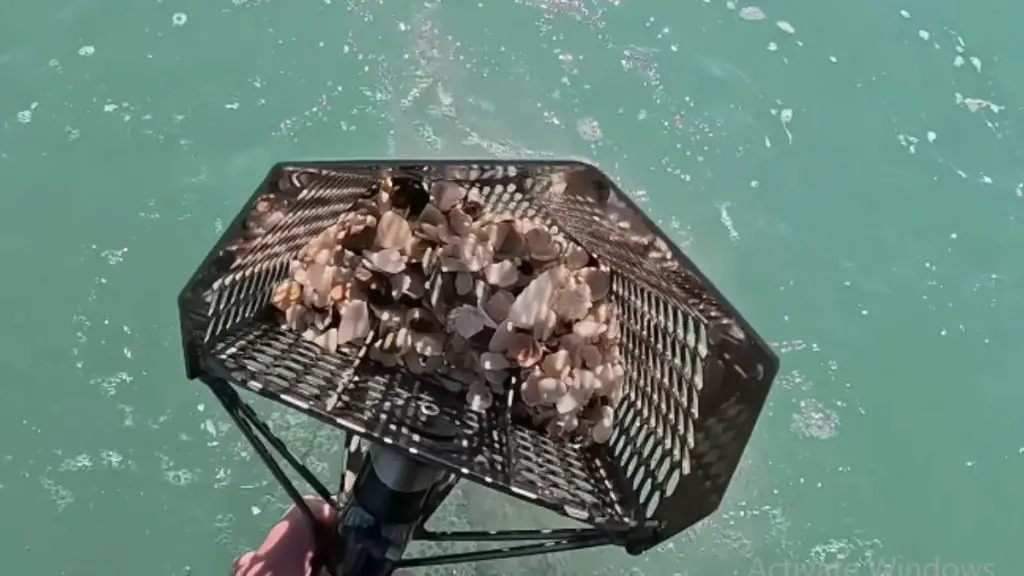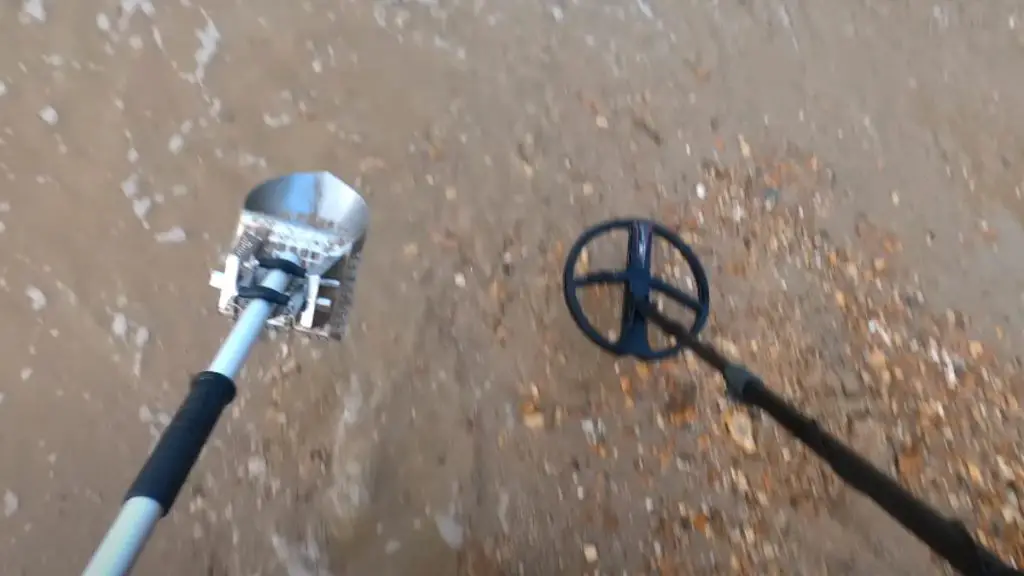Metal detecting, a treasure hunt across time, has enthralled many in Liverpool, known for its rich historical tapestry.
Metal detectorists, armed with their trusty tools, scan the ground, seeking forgotten coins, relics, and stories that whisper of Liverpool’s bygone eras.
In this guide we’ll discover the best places, clubs for metal detection and the legal concerns for you in Liverpool.
Let’s begin!
Metal Detecting in Liverpool

Liverpool has been around for hundreds of years, famous for its port and the Beatles, which means there could be lots of hidden treasures underground.
It’s a great place for metal detecting since there is a good chance of finding old coins, relics, or even things linked to the city’s musical heritage.
Some of the best spots for metal detecting include local beaches like Crosby and Formby, where you might uncover items washed ashore.
On the other hand, the fields and open areas surrounding Liverpool, where history may lie just beneath the surface.
However, you should always check the ownership of the land and ask for permission because you need to follow the law when metal detecting.
Also, be aware of the Portable Antiquities Scheme, which is a program in England and Wales for recording small finds of archaeological interest.
If you find something that could be historically important, you should report it so that everyone can learn more about Liverpool’s history.
Is it legal to Metal Detect in Liverpool?
Metal detecting in Liverpool, like in many other places, involves understanding and following specific local laws and regulations to ensure that your activities are legal and respectful of the area’s heritage and environment.
While the Liverpool City Council website provides extensive information on various services and regulations within the city, it does not directly address the specifics of metal detecting laws on its main pages.
However, here are some general considerations and laws you should be aware of if you’re planning to go metal detecting:
You should obtain permission from the landowner before metal detecting. Detecting without permission is illegal and can be considered trespassing.
Also avoid metal detecting on protected archaeological sites, including Scheduled Monuments, as it is illegal.
The Historic England website provides a map and list of these locations.
For beaches, parks, and public lands, check with local councils or governing bodies for specific regulations.
Some areas may allow detecting with restrictions, while others may prohibit it entirely.
Under the Treasure Act 1996, finders of potential treasure (defined by age, material, etc.) in England, Wales, and Northern Ireland are legally obliged to report their finds to the local coroner within 14 days.
Non-treasure finds should be reported to the Portable Antiquities Scheme so they can be recorded.
Follow the Metal Detecting Code of Conduct, which includes guidelines like filling in holes, disposing of litter, and reporting finds appropriately.
Best Places to go Metal Detecting in Liverpool
1. Anfield Stadium
While metal detectors are not allowed on the stadium grounds, the area around Liverpool Football Club’s home offers opportunities to find lost coins and other treasures.
2. Old Hall Street
Known for its historical buildings and as a bustling shopping area, metal detecting is permitted on this street, allowing you to uncover hidden treasures among the shops.
3. Albert Dock
A popular tourist spot with many restaurants and bars, metal detecting is allowed on the dock, providing a chance to find lost coins and other items.
4. Sefton Park
As one of Liverpool’s largest parks and a favorite spot for families, metal detecting here can lead to the discovery of lost coins and treasures.
5. Wirral Peninsula
Home to many beaches and coastal towns, metal detecting is permitted on all beaches in the area, offering a great opportunity to find lost items along the shore.
Metal Detecting Clubs in Liverpool
Notable Clubs in the UK
While specific clubs in Liverpool were not mentioned, the UK has a vibrant metal detecting community with several notable clubs, such as the National Council of Metal Detecting, which offers training, insurance, and support for significant finds.
Other clubs include the Swansea Metal Detecting Club and the Solent Metal Detecting Club, known for their active participation and contributions to the hobby.
Benefits of Joining a Metal Detecting Club
Whether you’re a beginner or an expert, clubs often provide training sessions and tips to help you improve your skills.
Clubs are a great way to meet people with similar interests, share experiences, and make new friends.
Most clubs organize regular treasure hunts, competitions, and social gatherings, offering fun ways to explore and enjoy the hobby together.
How to Join a Club
The process to join a club typically involves:
1. Firstly look for clubs in your area or ask for recommendations from other metal detecting enthusiasts.
2. Then reach out to the club for information on membership requirements, fees, and meeting schedules.
3. Most clubs encourage potential members to attend a meeting or event to get a feel for the club before joining.
Metal Detecting on Liverpool Beaches
One of the best places to explore is Crosby Beach, where the famous ‘Another Place’ sculptures by Antony Gormley are located.
This beach often yields interesting finds due to its history and the amount of visitors it receives.
Formby Beach is another great choice, especially for those looking to combine a day of detecting with a scenic nature walk.
The best time for detecting is during low tide when more of the beach is exposed. You should also fill any holes you dig and take care not to disturb local wildlife.
Familiarize yourself with the Treasure Act and any local regulations about metal detecting. If you unearth litter, help keep the beaches clean by disposing of it properly.
Metal Detecting in Liverpool Rivers
Metal detecting along Liverpool’s rivers can be a rewarding experience, as these waterways have been central to the city’s history and commerce, potentially concealing historical treasures.
The River Mersey, often bustling with activity, has a history interwoven with Liverpool’s maritime past.
While access to the riverbanks may be restricted in places, detecting near old docking areas could yield interesting finds.
- Check the local tide times to ensure safe detecting.
- Always fill any holes and leave the location as you found it.
- Carry a finds pouch and trash bag to keep the environment clean.
You can also find our guide on metal detection in Tasmania, In Western Australia, in Newcastle, and South Australia; for successful hunt.
Is there any buried treasure in Liverpool?
While there’s no verified report of a traditional “X marks the spot” kind of buried treasure in Liverpool, the city itself is a treasure trove of cultural heritage and history.
Tales of pirates and privateers are part of Liverpool’s maritime lore, but these stories are yet to lead to any real-life treasure chests filled with gold and jewels.
Instead, the real wealth of Liverpool lies in its vibrant music scene, historic buildings, and the rich spirit of its people.
So while you might not find a hidden cache of pirate booty, you’ll discover that Liverpool’s treasures are there for all to see and enjoy.

Frederick Perez is the founder of Scrape Dude. He loves exploring and finding hidden treasures in unexpected places. Frederick has been dumpster diving and gold panning for years, turning his hobby into our website to share his adventures. He’s known for his friendly advice and exciting stories, inspiring others to discover the joy in these unique hobbies. His expertise makes Scrape Dude a trusted and fun place to learn and explore.


